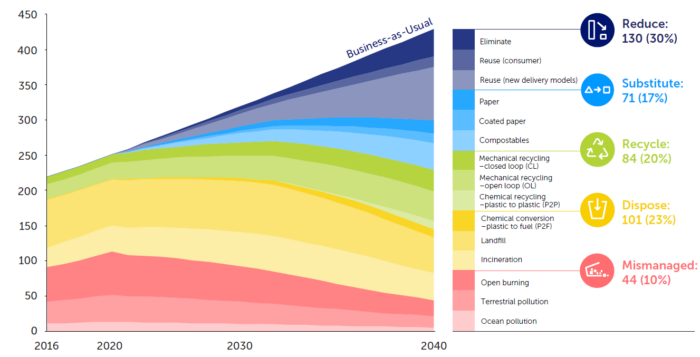P2O
Shocking reports of plastic pollution have prompted concerted global efforts to mitigate its effects, yet the research-base that underpins this important subject is embryonic when it comes to understanding the complexities of this growing environmental challenge. In response to this need, under The Pew Charitable Trusts leadership and SYSTEMIQ project coordination we collaborated to co-develop the P2O model in order to understand the flows of plastic and plastic waste through global society.

Source: Breaking the Plastic Wave (million tonnes plastic waste)
This ‘first of a kind’ study used the 'wedges approach’, first introduced in 2004 as a method of communicating potential interventions required to stabilise anthropogenically driven global warming. Dr Velis' research team provided thought leadership in the waste and resource management aspects of the modelling effort.
Open burning of waste, a core yet under-reported aspect of plastic pollution is also under focus here. Ed Cook, Research Fellow at the Leeds team explained:
During open burning, the combustion is often incomplete, and all sorts of potentially toxic emissions are released, which can result in a range of negative health outcomes. Those obnoxious substances are being breathed in by people who are working with waste and also in the communities that live nearby.
In addition to tracking the mass of plastic flowing through the global system, the P2O model calculated the costs to global society from the production of plastic through to its management ‘after use’. This enabled our team to investigate the economic impact of plastics and to assess the potential consequences of interventions to mitigate the negative effects of plastic over the next two decades.

